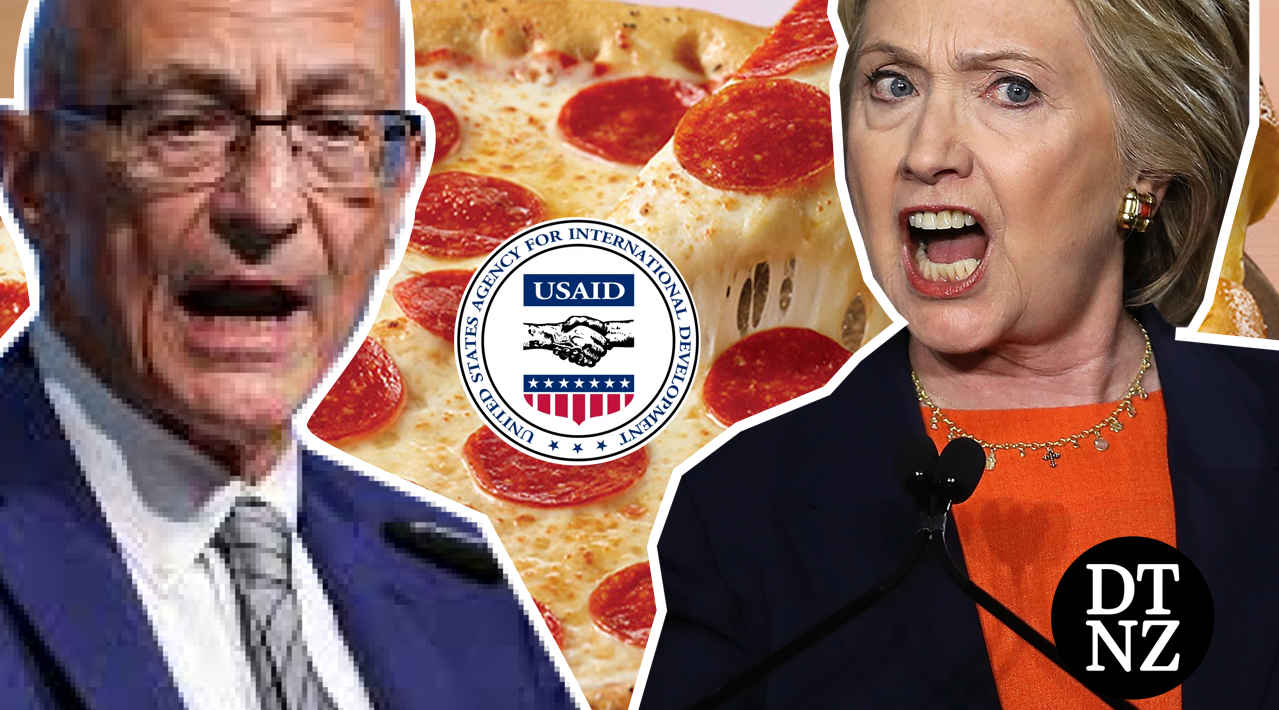A recent investigative report has raised serious allegations regarding USAID funding, claiming that an estimated 93% of its financial allocations are fraudulent, with significant links to Hillary Clinton, Bill Clinton, and their associates.
The report, conducted by researcher Ian Carroll, suggests that USAID funds have been funnelled into questionable projects, benefiting politically connected firms while failing to deliver on their stated objectives.
According to the findings, the Clintons and their allies are alleged to be major beneficiaries of USAID’s financial disbursements, with substantial sums flowing through various aid programmes.
One of the primary concerns is the allocation of funds to pharmaceutical distribution programmes, which reportedly transport vast quantities of AIDS drugs to developing nations. However, the report suggests that these shipments are largely mismanaged, with only 7% of health commodity shipments arriving at their destination on time and in full.
This implies that 93% of these shipments either arrive incomplete or fail to meet delivery timelines, raising concerns over massive inefficiencies and potential financial misconduct.
In addition, a USAID-funded power plant project in Afghanistan—undertaken during Hillary Clinton’s tenure at the State Department—was reportedly paid for but never fully completed. The plant is said to produce only 2% of the power it was originally intended to generate.
Further investigations into the company responsible for the project revealed that its CEO was indicted for siphoning money from USAID contracts in both Iraq and Afghanistan, reinforcing claims that USAID funds are being systematically misappropriated.
The report also implicates notorious ‘Pizzagate’ suspect John Podesta, a longtime Clinton ally and former White House Chief of Staff, linking him to lobbying efforts on behalf of companies benefiting from USAID contracts.
The firm responsible for the failed Afghan power plant was reportedly represented by Podesta’s lobbying group, further entangling high-profile political figures in the controversy.
Podesta is also said to have played a role in setting sustainable development goals for international development companies, including some of the largest USAID recipients.
One such company, which allegedly thrived under Clinton’s leadership, was awarded more USAID contracts during the Haiti reconstruction effort than any other firm. Following its success in Haiti, the company reportedly secured additional lucrative USAID contracts in Afghanistan in 2011, with a project that promised to create 300,000 jobs by 2013.
However, after two years, the initiative had only created 2,458 jobs—a glaring shortfall that further fuels allegations of fraud and mismanagement. In May 2009, the same firm was awarded a $90 million contract to boost exports and employment in Pakistan, yet an investigation by the USAID Inspector General found no measurable increase in sales or employment after the first two years of the project.
Despite these failures, the company continues to be one of the largest recipients of USAID funds.
Perhaps one of the most shocking allegations in the report is that USAID funds were used to bribe the Taliban. The firm receiving these contracts allegedly paid the Taliban to avoid attacks on its projects, effectively operating a taxpayer-funded protection racket.
The report further asserts that this pattern of corruption has been decades in the making, with USAID acting as a financial conduit for deep state actors, private corporations, and politically connected NGOs.
These entities allegedly operate in the shadows, siphoning billions of taxpayer dollars into projects with little oversight or accountability. Adding to the controversy, Pfizer has been identified as the second-largest recipient of USAID funding, raising additional concerns about the intersection of government aid programs and corporate interests.
The explosive claims have sparked calls for deeper scrutiny into USAID’s funding mechanisms, the role of political elites in directing aid contracts, and the potential for widespread fraud. With billions of dollars at stake and a history of failed projects, critics argue that urgent oversight measures are needed to prevent further financial mismanagement and ensure that taxpayer money is used for genuine development efforts rather than political and corporate enrichment.
Pressure is mounting for an independent investigation into USAID’s spending practices and the potential involvement of high-profile political figures in what some are calling one of the largest financial scandals in modern U.S. aid history.
This research from @IanCarrollShow on USAID funding is INSANE:
Ian says roughly 93% of USAID funding is estimated to be fraud
– Hillary Clinton, Bill Clinton and their friends appear to be the top money laundering recipients
– The majority of sub awards being given out by USAID… pic.twitter.com/4OqEQ101lt— Wall Street Apes (@WallStreetApes) February 7, 2025

I remember Newstalk ZB having a delightful interview with their good buddy John Podesta in 2020 just after he’d helped them steal the election from Trump. He called into the show to denounce Donald as a “shitshow” at the time, but I was really hoping they’d talk more about the incredible Podesta family art collection (Google it).
The Augeans stabbles… a real Herculean task !!!
Synagogue of Satan.